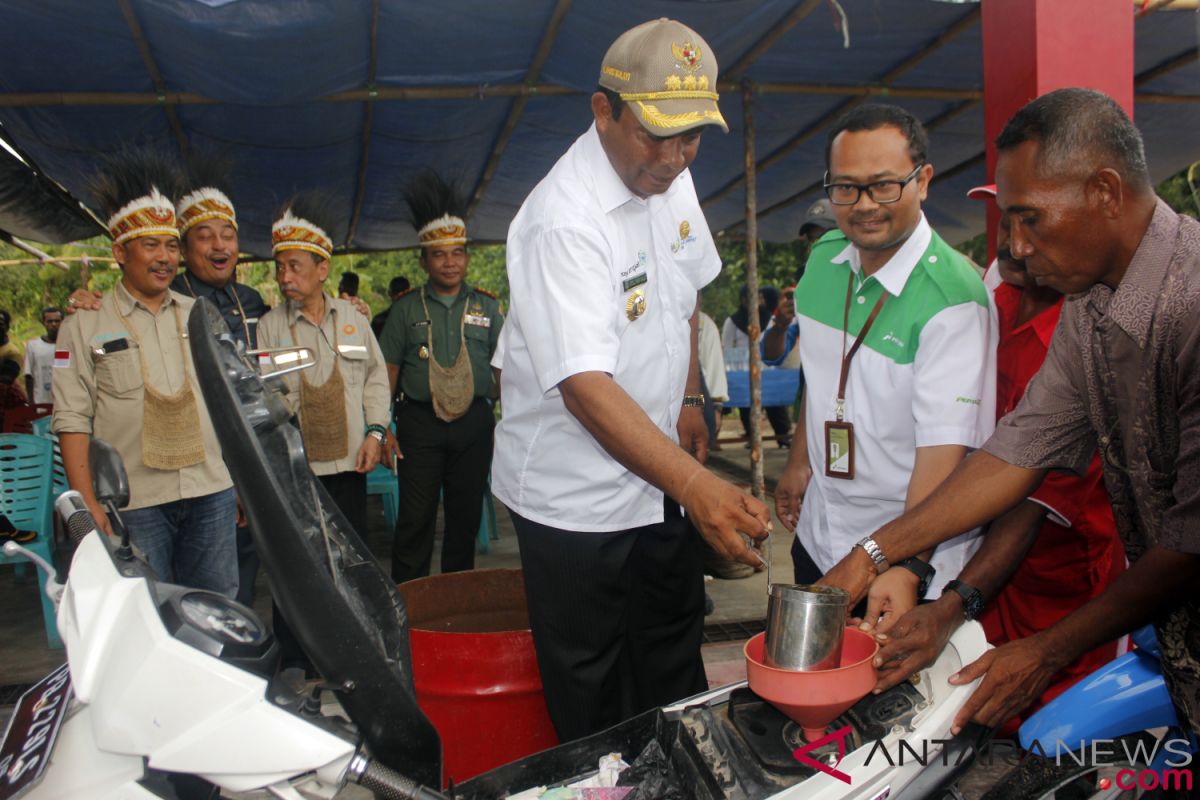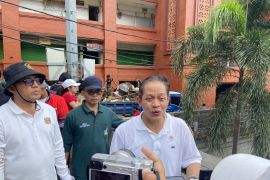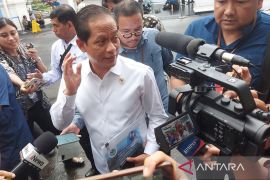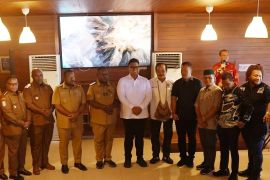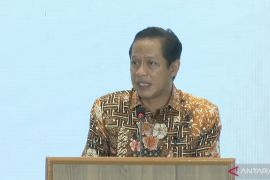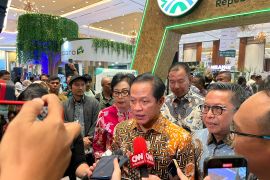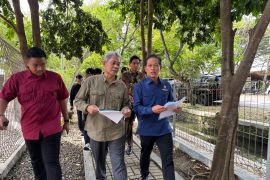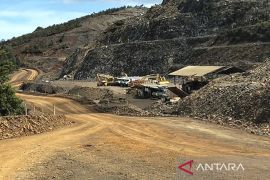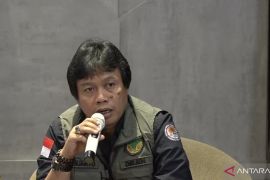Famous for its beauty and attraction for tourists, Raja Ampat waters must continue to be kept from plastic waste pollution, which can damage the underwater ecosystem.
For this reason, Raja Ampat District Head Abdul Faris Umlati has called on the local government and the community to remain committed to maintain the cleanliness of the waters to support sustainable tourism of the district in West Papua.
One of the efforts of the regional government and the community to maintain the cleanliness of the waters of Raja Ampat is to campaign for a ban on using refillable drinking water bottles from plastic.
Umlati expressed hope that if all people in the in the district use bumblers or drinking bottles made of glass, the use of plastic bottles will automatically decrease and reduce the plastic waste pollution in Raja Ampat waters.
Besides the local community, both domestic and foreign tourists visiting Raja Ampat are also encouraged to use tumblers while enjoying the crystal-clear waters or the local tourist attractions.
Tourism stakeholders in Raja Ampat are also committed to maintain the cleanliness of the sea, so that the underwater beauty of Raja Ampat remains sustainable and can be enjoyed by the tourists and the next generations in the future.
The effective management of Raja Ampat marine conservation area and its waters has drawn praises from numerous tourists visiting the district in West Papua.
Tourists visiting Raja Ampat acknowledged that owing to proper management of the marine conservation areas, they were able to enjoy the sights of various fish species without having to dive into the waters.
A tourist from China remarked in the Raja Ampat district town of Waisai that watching various species of fish from the surface of the waters was an attraction for tourists from all over the world.
Being a huge diving enthusiast, the Chinese tourist remarked that he had visited some dive sites, but he also paid a visit to Raja Ampat, as the diving there is believed to be the best in the world.
Raja Ampat comprises a group of islands with the most bio-diverse marine region on earth.
The fact that there are not many boats or people polluting the waters means that Raja Ampat district government and local community have worked hard to optimally maintain the marine conservation area.
Several Chinese tourists visiting Raja Ampat admitted to being happy since even without diving, they could spot dolphins, manta rays, sharks, and huge schools of fish.
The tourists praise the local community as they can help the local government to properly manage the tourism water conservation area in Raja Ampat.
Raja Ampat comprises four large islands and hundreds of dots and specks off the western corner of Papua, the world`s second-largest island.
The islands are currently a preferred destination for divers interested in exploring the beauty of the underwater scenery.
Known as the most bio-diverse marine habitat on earth, Raja Ampat in West Papua is an ideal destination for both local and foreign tourists to relax and unwind.
Visitors to Raja Ampat have the opportunity to witness a multitude of marine habitats and coral reefs in one glance without having to swim a stroke.
Most visitors arrive in Raja Ampat through Sorong, a city on the far west coast of Papua, which has an airport, army barracks, and a karaoke bar called Happy Puppy.
In less than two hours from Sorong, visitors can reach Raja Ampat, where they can indulge in activities such as swimming, diving, and snorkeling, or just relax.
Foreign tourists visiting Raja Ampat are enthralled by its beauty, found nowhere else in the world.
Some of the tourist attractions in Raja Ampat include the Kabui Strait, Arborek Islands, Pasir Timbul, the iconic Wayag Islands, and Arborek Island.
Arborek Island is fast developing as a region for marine conservation. The island, which includes the Arborek Village, has gained popularity for its success in developing into one of the region`s finest marine conservation areas.
The success has been recognized both by the local authority and international community.
The island has succeeded in managing its conservation area since several parties, including the national and local governments, non-government organizations, research centers, and local people, have lent their support.
Arborek Island has been simultaneously managed as a conservation area and marine tourism destination.
Tourists visiting the island can experience the beautiful scenery, both on the surface and underwater. They can also explore the scenic village on the island and the ocean life in West Papua.
West Papua is famous for its attractive tourism potential that has to be managed optimally to improve the welfare of the local community.
The province is well-known for its various scenic landscapes, including Raja Ampat, Arfak mountains, and numerous waterfalls, which continue to attract local and foreign tourists.
Hence, the local Culture and Tourism Office is currently making every effort to implement tourism plans to optimize the management of its tourism potential.
West Papua Culture and Tourism Office Chief Yusak Wabia remarked in the provincial city of Manokwari that the tourism movement seeks to encourage community-based tourism development in a bid to improve the welfare of local communities.
According to Wabia, community-based tourism development will involve the people so that they will have the ability to independently promote and manage tourism potentials in their respective regions in future.
The West Papua provincial government and community will also manage Petrus Kafiar Beach in North Manokwari as a new tourist destination to spur regional economic growth.
Wabia explained that tourism will be developed in Petrus Kafiar Beach to multiply the alternatives for tourists who crave coastal attractions.
Reporter: Otniel Tamindael
Editor: Andi Abdussalam
Copyright © ANTARA 2018
